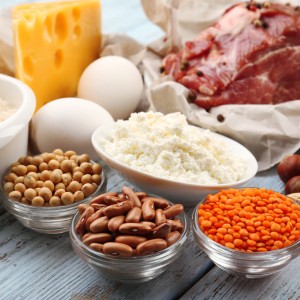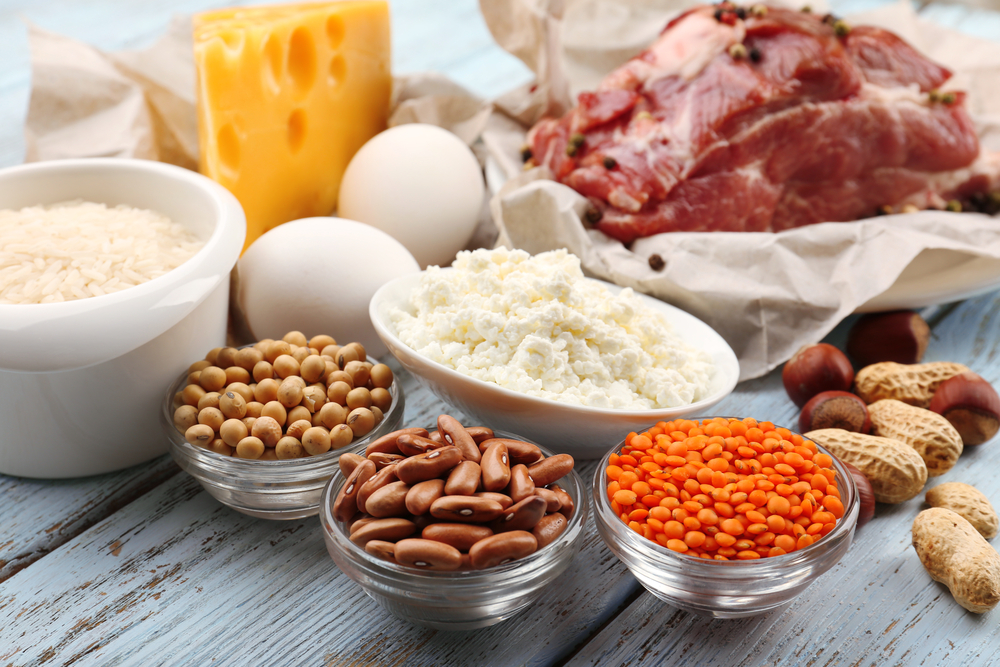 It is well-established that regular consumption of high-fat diets increases heart attack and stroke risk. However, a new study has underscored previous research findings that paradoxically, a high-fat diet, eaten one day to two weeks before a heart attack, actually reduces heart attack damage in mice by about 50 percent.
It is well-established that regular consumption of high-fat diets increases heart attack and stroke risk. However, a new study has underscored previous research findings that paradoxically, a high-fat diet, eaten one day to two weeks before a heart attack, actually reduces heart attack damage in mice by about 50 percent.
The finding by a team led by W. Keith Jones, PhD, chair of the Department of Molecular Pharmacology and Therapeutics of Loyola University Chicago’s Stritch School of Medicine and his research team has been published in the American Journal of Physiology – Heart and Circulatory Physiology.
The paper, entitled “Acute consumption of a high-fat diet prior to ischemia-reperfusion results in cardioprotection through NF-B-dependent regulation of autophagic pathways“ (Heart and Circulatory Physiology Published 15 December 2014 Vol. 307 no. 12, H1705-H1713 DOI: 10.1152/ajpheart.00271.2014), coauthored by Dr. Jones’s associate in previous research Lauren Haar PhD, Xiaoping Ren, Yong Liu, Sheryl E. Koch, Jillian Goines, Michael Tranter, Melinda A. Engevik, Michelle Nieman, and University of Cincinnati Academic Health Center professor Jack Rubinstein, notes that previous studies have demonstrated improvement of cardiac function associated with short-term consumption of a high-fat diet (HFD) after myocardial infarction (MI).
The researchers observe that no data exist addressing effects of acute HFD on the extent of injury after MI, and that this new study investigates the hypothesis that short-term HFD, prior to infarction, protects the heart against ischemia-reperfusion (I/R) injury through NF-B-dependent regulation of cell death pathways in the heart. They observe that data show acute HFD initiates cardioprotection against MI (>50% reduction in infarct size normalized to risk region) after 24 h to 2 wk of HFD, but protection is completely absent after 6 weeks on an HFD, by which mice are reported to develop pathophysiology related to the diet.
 “The study improves our understanding of the relationship between diet and health,” Dr. Jones comments in a Stritch School of Medicine release. “Learning about how fat, in the short run, protects against heart attacks could help in the development of better therapies.” Dr. Jones emphasizes that the study results are not a license to go on a cheeseburgers and ice cream bender.
“The study improves our understanding of the relationship between diet and health,” Dr. Jones comments in a Stritch School of Medicine release. “Learning about how fat, in the short run, protects against heart attacks could help in the development of better therapies.” Dr. Jones emphasizes that the study results are not a license to go on a cheeseburgers and ice cream bender.
The release notes that the study may also provide new insight into what’s known as “obesity paradox,” that is while obesity is a major heart disease risk factor for having a heart attack, once a heart attack or heart failure does occur, moderately obese patients tend to live longer. The study points out that most risk calculators used by clinicians overestimate heart attack risk. For example, 41 percent of the British population is unaware of diet’s role in cancer development.
Mice used in the study were given an extremely high-fat diet (60 percent of calories from animal fat) before experiencing heart attacks, and mouse subjects that had consumed a high-fat diet for either one day, one week, or two weeks before heart attack onset experienced about half as much heart damage as mice fed a lower fat control diet. Benefit was found to be greatest among mice that ate a high-fat diet for one week before the heart attack, but once mice had eaten high-fat diets for six weeks, the protective effect disappeared. Dr. Jones observes that further research is needed in order to better understand this counterintuitive phenomenon, speculating that the reason may be bad effects of consuming a persistent high-fat diet.
Dr. Jones also notes that over the short-term, a high-fat diets appear to protect the heart via a mechanism called autophagy, which he compares to working works somewhat like a garbage truck. Ergo: proteins damaged by the heart attack are removed from heart cells as if they were garbage, thus increasing the chances for remaining sound cells to survive.
However, acute consumption of high-fat foods will increase levels of a blood molecule that activates protective heart muscle pathways, thereby increasing the cardio “garbage trucks'” efficiency, which consequently makes cells more resistant to damage when a heart attack occurs and with the result that more heart muscle survives. Dr. Jones’s team is continuing to study the nature of the blood-borne molecular activity and will report results of this research in a later publication.
The current study “opens a new perspective on the acute effects of a high-fat diet,” the coauthors write. “Future work will determine whether these effects are linked to the obesity paradox and whether studying the mechanism can identify therapeutic targets for cardioprotection.”
The coauthors add that, given the increasing number of obese people in both developed and developing countries, understanding the relationship between fat intake and heart health is “critically important.”
Study first author Lauren Haar, PhD also ran one of the previous studies on the subject referenced above while a doctoral student in the Systems Biology and Physiology Graduate Program at the University of Cincinnati Academic Health Center in 2011. The researchers in that study also found that short-term, high-fat “splurges in a person’s diet could elicit cardioprotective properties during a heart attack — their findings presented at the April 2011 Experimental Biology Meeting sponsored by the American Society for Pharmacology and Experimental Therapeutics at Washington, D.C. Ms. Haar and colleagues found that short-term, high-fat feeding in animal models led to cardioprotection against myocardial infarction (MI, or heart attack) and resulted in less cardiac tissue damage.
For the 2011 study, the researchers fed one group of mice a high-fat diet (60 percent of the calories coming from saturated fat) for two weeks or less. A second group received the high-fat diet for six weeks, and a control group received a regular, grain- and vegetable-based diet.
“We then induced heart attack in all groups and assessed the cardiac function and extent of injury to the tissue, Ms. Haar observed in a UoC release. “Our results showed that injury in mice fed a high-fat diet acutely (two weeks or less) was reduced by 70 percent when compared to the groups fed on a high-fat diet for six weeks or fed on a control grain and vegetable based diet.”
Dr. Haar also conducted her 2011 research under the mentorship of Dr. Keith Jones, who was at the time a professor and vice chair of the Department of Pharmacology and Cell Biophysics at the University of Cincinnati College of Medicine, and Jack Rubinstein, MD, assistant professor of medicine in the division of cardiovascular diseases and UC Health cardiologist.
Sources:
Loyola University Chicago Stritch School of Medicine
University of Cincinnati Academic Health Center
American Journal of Physiology – Heart and Circulatory Physiology
Image Credits:
Loyola University Chicago Stritch School of Medicine


